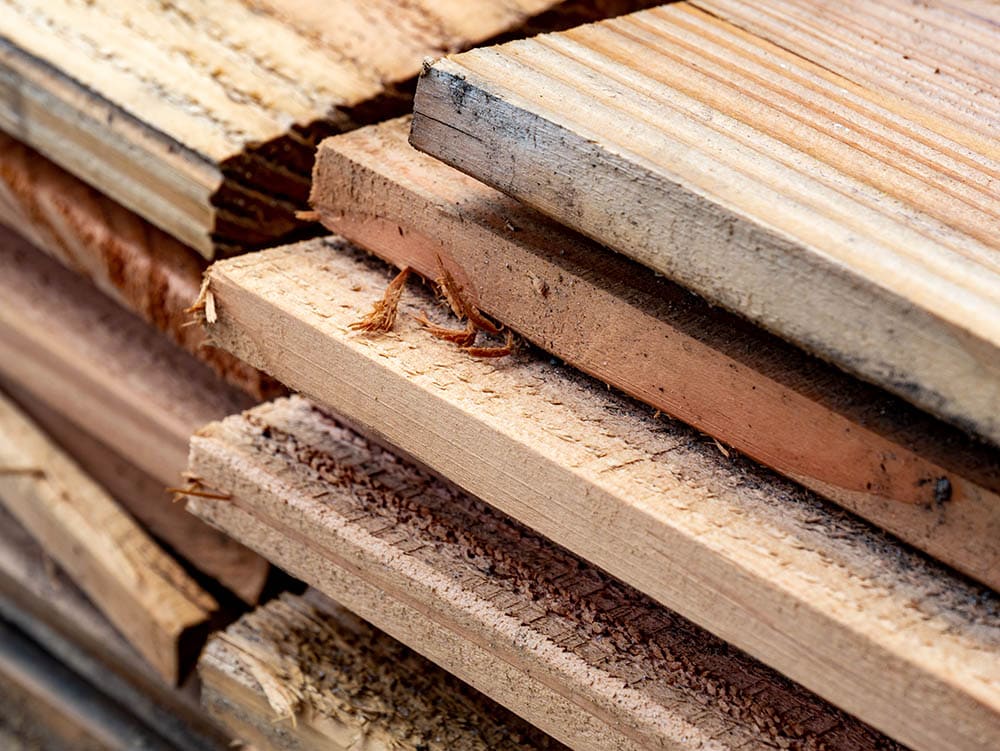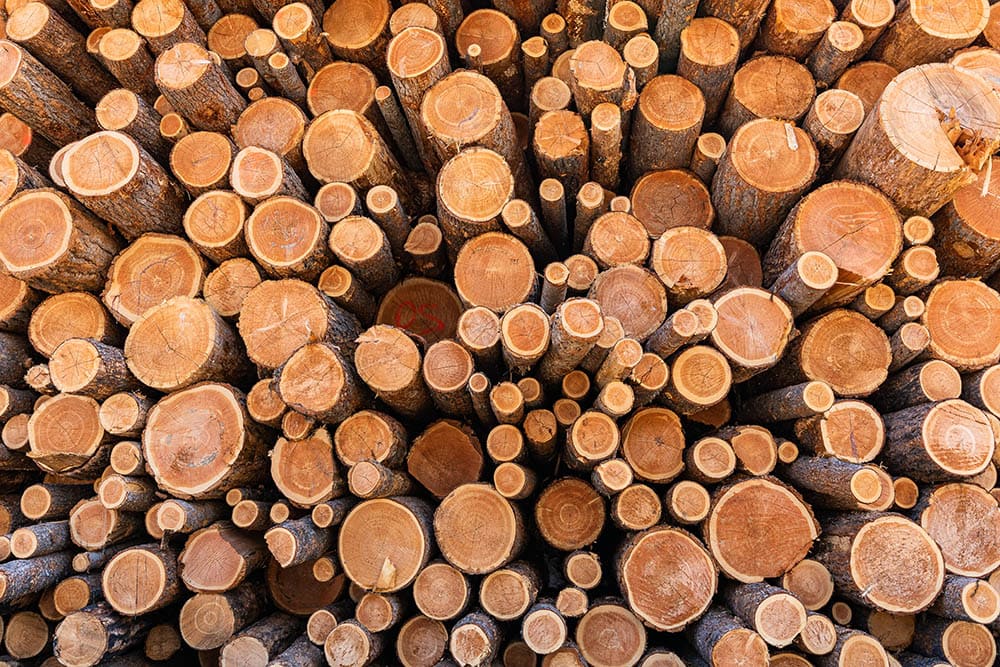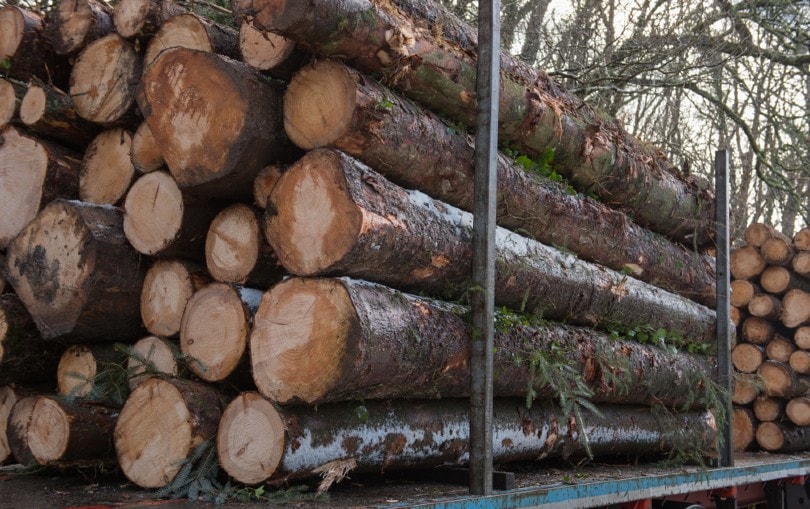Is Douglas Fir Rot Resistant? Pros, Cons & FAQ
-

- Last updated:

The Douglas Fir is a coniferous member of the pine tree family. It is predominantly grown in western North America and is one of, if not the, most popular wood used for construction projects. It is strong and durable, and it will withstand shock and impact loads. It is considered weatherproof and is not only used for DIY projects but commonly used in the construction of timber-frame houses and other properties.
Douglas Fir is naturally resistant to rot, which makes it suitable for outdoor use, like building fences and decking, while its workability and clean lines make it ideal for ornamental use. Its biggest downfalls are its cost and the fact that its density makes it difficult to treat.
Read on for more information on this popular timber and to determine whether it is the right material for your project.

About Douglas Fir
Douglas Fir is a softwood that is part of the pine family. This deciduous tree prefers cool-weather climates and is commonly found in USDA zones 5–6, although a variety called the Rocky Mountain Douglas Fir will also thrive in zone 4. The Douglas Fir grows along the Pacific Northwest with a range from British Columbia to California.
The tree itself can grow to 300 feet, although they rarely reach this height before they are felled when being grown for timber. And, if you grow them in your yard, they are unlikely to get above 50 feet.
Depending on growing conditions, the Douglas can grow 2 feet a year, so while no tree can grow quickly enough for fellers or gardeners, it certainly isn’t the slowest growing tree.

The Benefits of Douglas Fir
Douglas Fir is one of the most popular timbers, and for several reasons:
- Good Workability – It is a softwood which means that it is easy to work with. It can be sawn, planed, sanded, and machined. It will accept screws and nails, too, without splitting or splintering easily.
- Moisture Resistant – Douglas Fir has a dense grain. This means that it doesn’t easily soak up moisture and is one of the reasons that this wood is such a popular choice for outdoor projects.
- Strong – Although it is part of the pine family, Douglas Fir has superior load-bearing strength to pine, hence its use as a construction material for building houses, barns, and other buildings.
- Stability – It isn’t prone to warping or becoming misshapen even if the wood gets wet. The high density of the grain means that the layers do not contract or expand as they get cold or hot, either, giving excellent stability long after the wood is worked and installed.
- No Harmful Smoke – The Fir can be burned without it giving off harmful toxins. Similarly, the tree does not contain chemicals or toxins, which means that it can be handled without having to wear gloves or other safety equipment.
- Decorative Appearance – The fine grain, light coloring, and different shades of tint and grain make this a beautiful wood. It is often used in the construction of decorative pieces, as well as in buildings.
The Disadvantages of Douglas Fir
Although it is a popular wood with multiple benefits, there are some drawbacks to using Douglas Fir.
- Expensive – Douglas Fir is a very popular timber, and it is used in decorative as well as construction work. This popularity means that it does cost more than a lot of other timber choices, including pine.
- Doesn’t Accept Treatment Easily – The tight grain of the wood is beneficial because it makes the timber water resistant. But this same property also means that it can be difficult to get Douglas Fir to easily accept treatment or stain. It can still be painted, but if you’re going to cover the grain, it may be better to opt for something less expensive.
- Easily Damaged – Douglas Fir is a softwood, which makes it easy to work with but also makes it easy to damage. It can become dented and chipped over time, especially when used as decking.

Is Douglas Fir Good for Outdoor Use?
Because it is resistant to fungal decay and rot, Douglas Fir is considered a good choice of timber for outdoor use. It is often used as a cladding material for wood sidings.
What Is the Most Rot-Resistant Wood?
Generally, the most rot-resistant woods are those that contain natural oils and a lot of heartwood. Such woods include Cedar, Redwood, Mesquite, and Mahogany, all of which are even more rot resistant than Douglas Fir.
How Do You Waterproof a Douglas Fir?
Douglas Fir stands up well against moisture, but if you are building a deck or using the wood as a siding, you will want extra waterproofing to really seal the wood off. Use a thin, water-based exterior wood sealer and apply it with a paintbrush for the best results. This will need reapplying according to the sealant manufacturer’s instructions.

Conclusion
Douglas Fir is a strong and resilient softwood that is part of the pine family but is typically considered a higher quality timber than pine itself. It is considered rot resistant and water resistant, although its cost and ease of damage will put some potential buyers off. Treat it with a water-based waterproofing treatment to further enhance the wood’s waterproof properties and reapply to ensure that your decking or other Douglas Fir items do not become water damaged.
You might also like:
- 8 DIY Pallet Greenhouse Plans You Can Build Today (With Pictures)
- 5 DIY Tabletop Greenhouses You Can Build Today (With Pictures)
Featured Image Credit: TasfotoNL, Shutterstock
Contents
